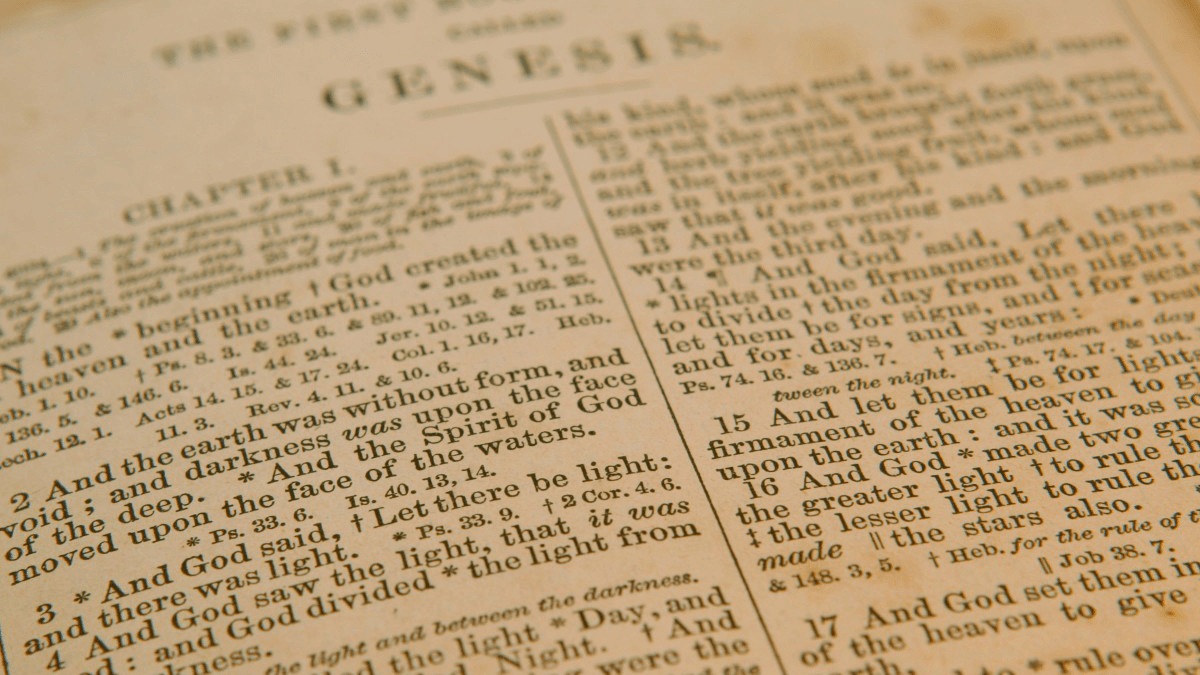Is it important to believe in a literal Genesis? Can’t we focus on ‘more important’ issues? Isn’t the church divided enough? And what does it really mean to believe in a literal Genesis?
First of all, it is vital to mention that this issue is NOT a salvation issue. One can be saved and believe in Jesus Christ as Lord and Savior while at the same time rejecting a six-day creation event.
I am the way, the truth, and the life: no man cometh unto the Father, but by me. (John 14:6 KJV)
Doesn’t that mean the issue of a six-day creation is irrelevant? Let’s go to the Bible for that answer.
Why is it Necessary for Christians to Believe in Six Literal Days?
Here are the two main reasons why denying a six-day creation can be dangerous:
-
It Undermines Jesus’ Credibility
Jesus Himself seemed to have believed in a literal creation account. He taught that creation was recent when He said that Adam and Eve existed from the beginning—not millions or billions of years after the creation of the universe.
But from the Beginning of the creation God made them male and female. (Mark 10:6 KJV)
Jesus also stressed the importance of believing the words of Moses. If one doesn’t believe in Moses’ words, how can he possibly believe in Jesus’ words?
For had ye believed in Moses, ye would have believed Me, for he wrote about Me. But if ye believe not his writings, how shall ye believe my words? (John 5:46-47 KJV)
And we know that Moses taught a six-day creation, just as it is stated in Genesis 1. In fact, whenever it cites Genesis, the entire Bible (Old and New Testament) refers to it as if it were real history.
For in six days the LORD made heaven and earth, the sea, and all that in them is, and rested the seventh day: wherefore the LORD blessed the sabbath day, and hallowed it. (Exodus 20:11 KJV)
-
It Shakes the Foundation of the Bible

GENESIS is the foundational book of the Bible. If one doesn’t trust what it says, why would he take any other book of the Bible in a straightforward manner? As previously mentioned, nearly all the books of the Bible (Old and New Testament) refer back to the Genesis as literal history.
- Adam and Eve were created on the sixth day. (Genesis 1:26)
- This day was at ‘the beginning’ (Mark 10:6)
If we start undermining the literal meaning of one part of the Bible, what is to stop us from doing the same with other parts of it? If we can choose to reinterpret the plain meaning of the text on the basis of what secular scientists claim, then should we question whether Jesus rose from the dead after three days? To follow this approach to Scripture would eventually deny the gospel message itself, thus becoming a salvation issue.
Why are Many Christians Skeptical About Many Parts of the Old Testament?
Humans tend to think they know it all. If man comes up with a method that can supposedly date the age of fossils, and that particular age is millions of years old, then many Christians choose to believe man than God. Many have proceeded to question the meaning of the Hebrew word yom in Genesis 1, although the context clearly leaves no space for it to be translated as an indefinite period of time. And even then, the chronology of God’s creation doesn’t match man’s idea of evolution.
It is time we step up for the Word of God and rather trust Him than man, who through history, has been proven to be wrong on so many occasions.
For my thoughts are not your thoughts, neither are your ways my ways, saith the LORD. For as the heavens are higher than the earth, so are my ways higher than your ways, and my thoughts than your thoughts. (Isaiah 55:8-9 KJV)
Further, our God is a loving God who wants all of humanity to be saved. He wouldn’t purposely give us a false creation account that would lead many astray and even more to disbelief.
For this is good and acceptable in the sight of God our Savior; who will have (”wants” NIV) all men to be saved and to come unto the knowledge of the truth. (1 Timothy 2:3-4 KJV)
Read
1. The Days of Creation: A Semantic Approach, by James Stambaugh, Journal of Creation, Vol. 5(1), 1991, pp. 70-78.
2. The Literal Week of Creation, by Henry M. Morris, Ph.D., Acts & Facts, Vol. 27(5), 1998
3. How long were the days of Genesis 1?, by Russell Grigg, Creation Magazine, Vol. 19(1), Dec. 1996, pp. 23-25.
4. Physics shows that six day creation is possible, by Eric Hovind, Creation Today, May 2005







